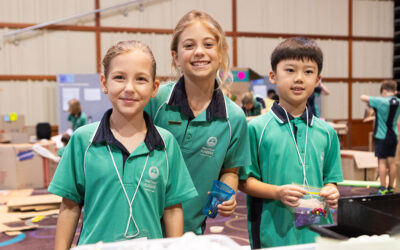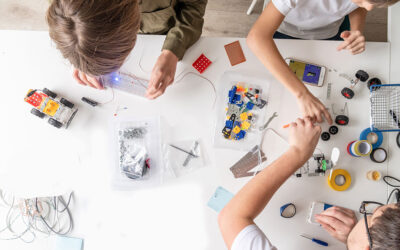Hands up. Who remembers days spent in the library researching school projects? There was no Google and no instantly checking things from a laptop. Instead, information was sourced by rifling through the pages of the encyclopaedia and various textbooks. Though technology now offers kids open access to a deluge of information, fact-checking remains an essential part of learning. The digital world can be the biggest culprit for false information. How do you teach kids to be savvy online?
A 2015 Stanford University History Education Group (HEG) study found that students significantly lacked the ability to recognise credible information online. The report states: “Many assume that because young people are fluent in social media, they are equally savvy about what they find there, and our work shows the opposite to be true.”
In short, technology is moving at such a pace kids are yet to develop the digitally savvy skills to absorb, assess and sift through the unprecedented amounts of information they are bombarded with.
Here’s how you can help kids to become savvy digital detectives.
Consider the source
We can generally trust a printed textbook. However, for digital information, we need to research the source. In fact, we must consider rather than consume information from any online content.
Start by investigating the site. Research its mission, its contact information or any previous articles. Then research the author. Are they credible? Are they even real?
Also, check the date on the article. You may find that it is too old or irrelevant to current events.
See beyond popularity
Just because something is on page 1 of Google doesn’t mean it is the most credible source. If someone has 100,000 Instagram followers, it doesn’t mean they are necessarily telling the truth. Superior SEO and polished website design can create a false sense of security, and we need to look beyond that.
Read beyond the headline
To encourage clicks, online headlines are designed to be attention-grabbing. We need to read beyond those headlines to uncover the whole story. It may be satire if it’s too outlandish; further research on the site should reveal this.
Learn the reputable sources
Just as we put our trust in textbooks, there are still some reputable sources out there, and the library is still one of the best resources! Your library card gives you access to the full digital version of Encyclopaedia Britannica and a plethora of credible sources, so there is no need to spend money buying textbooks or waste a bundle of time trying to sort right from wrong on Google.
Search with them
Next time your child has a project to research, sit and search with them. Show them the additional search options (such as putting specific terms in quotes) and the filter tabs that allow you to search verbatim (exactly that word) or by type (news, image, video). You can even specify a term not to be included by putting a hyphen before it.
If there is a site you trust, put a colon before the site name in the search bar, and the search engine will only search that site. For example, “penguins”:abc.net.au will pull up all the stories the ABC has published on penguins.
These savvy online detective skills will be something that will become vital to our children as they progress through their academic journey. Most universities today dictate that any essay sources must be from a credible textbook or a verified reference. As they grow into digitally savvy adults, their ‘fake news’ detector will become second nature.
How savvy online are your kids? Would they know how to spot ‘fake news’ or verify facts?
You might also like…
Early literacy games you can play anytime and anywhere
Easy ways to keep your child’s literacy up during the summer break
Have your kids spent money online without your permission?
Servicing Brisbane, Gold Coast, Sunshine Coast and beyond, Kids on the Coast is an online guide for parents with kids events, attractions & things to do with kids, schools and education, school holiday guides, health & wellbeing for families, parenting and lifestyle news located on Gold Coast, Sunshine Coast & Brisbane, QLD.


